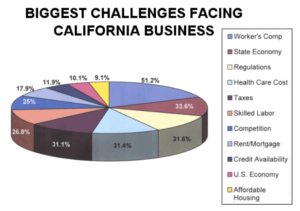Tell Me Your Value Equation

Every company feels like it has what it takes to make a difference in its customer’s lives. No matter what product or service they offer their clients, all companies feel like they can do it better than anyone else. So what makes one company stick out from another? Is it how much money that company makes for its own bottom line or is how much it helps its customers? When it comes to investing and getting behind a startup company or an entrepreneur, the real question is what is your value equation? That’s according to silicon valley’s legendary entrepreneur Rob Ryan.
What Sets Entrepreneurs Apart?
Rob and I spoke about his experience with helping entrepreneurs, which is his main focus now since retiring from running his company. In 1999, Rob sold Ascend Communications, which helped create and build the entire infrastructure of the Internet, to Lucent Technologies for about $24 billion. To this day, this deal still holds the record as the the biggest merger between technology companies. Rob is now the Chairman and co-founder of Hero Club, which is an organization dedicated to training and developing entrepreneurs. However, Rob told me that one of the main things he looks for when trying to determine the true value of a company is not how much the company itself is worth, but how much value the company brings to its customers.
What Is the Value Equation?
This is what Rob calls the value equation and he says a lot of companies can’t really accurately answer this question. Many companies speak about what they do well and how their product or service is different, but they aren’t really explaining what their value is. For Rob, he’s looking at how much you can really help your customer, not yourself. Rob shared an example with me regarding the question, how much money can you make or save your customer? He said if a company were to answer him that its product or service could help save it’s customer $800,000 a year because it’s capable of the doing the following things…then he knows he has a good one. He said that is a company he is going to explore deeper.
Do You Know Your Value Equation?
Rob said that he has a lot less interest in the companies that can’t really answer that question or that haven’t take the time to determine what their true value equation is. In fact, the answer to that question is so important to Rob that he told me that “the people that have actually taken the time to explore and work with their customers and know where the customer’s pain is and how much that pain is costing them, that would be the one question I would ask if I only had one question to ask.” Therefore, as far as Rob is concerned, if you want to set yourself apart as an entrepreneur or a startup company then you need to know your value equation. That means you need to know what the real value is that you bring to your customers and how to explain what that value is.
How to Successfully Sell Your Company
How to Successfully Sell Your Company Tips for Privately-Held Business Owners By Jason Pfannenstiel Be clear about your motivation for selling. Reason for the sale is among the first questions buyers will ask. Your personal and professional reasons should be more than simply wanting to cash out for a certain magical dollar value. Before you…
15 Ways to Improve Your Cash Flow Now
15 Ways to Improve Your Cash Flow Now By Howard Fletcher Cash management theory and techniques are well understood and practiced by treasury managers in large corporations. They use sophisticated models and cash management tools that allow them to predict and manage cash. Many of these are beyond the reach or need of small companies.…
Survey: Biggest Challenges Facing California Businesses
Survey: Biggest Challenges Facing California Businesses A recent survey was conducted to determine what business owners in California thought the biggest challenges facing their businesses were. Out of 1500 questionnaires, these are the percentage of respondents who checked off a box next to each challenge. (Respondents were allowed to select more than one box, so…
5 Strategies to Successful Cash Flow Management
5 Strategies to Successful Cash Flow Management By John Reddish How can you predict, avoid and/or, minimize the impact of a cash emergency? Managing cash flow is every manager’s challenge, every day, every year. Those managers who keep a close eye on their daily activity and emerging industry trends can help reduce their company’s exposure…


